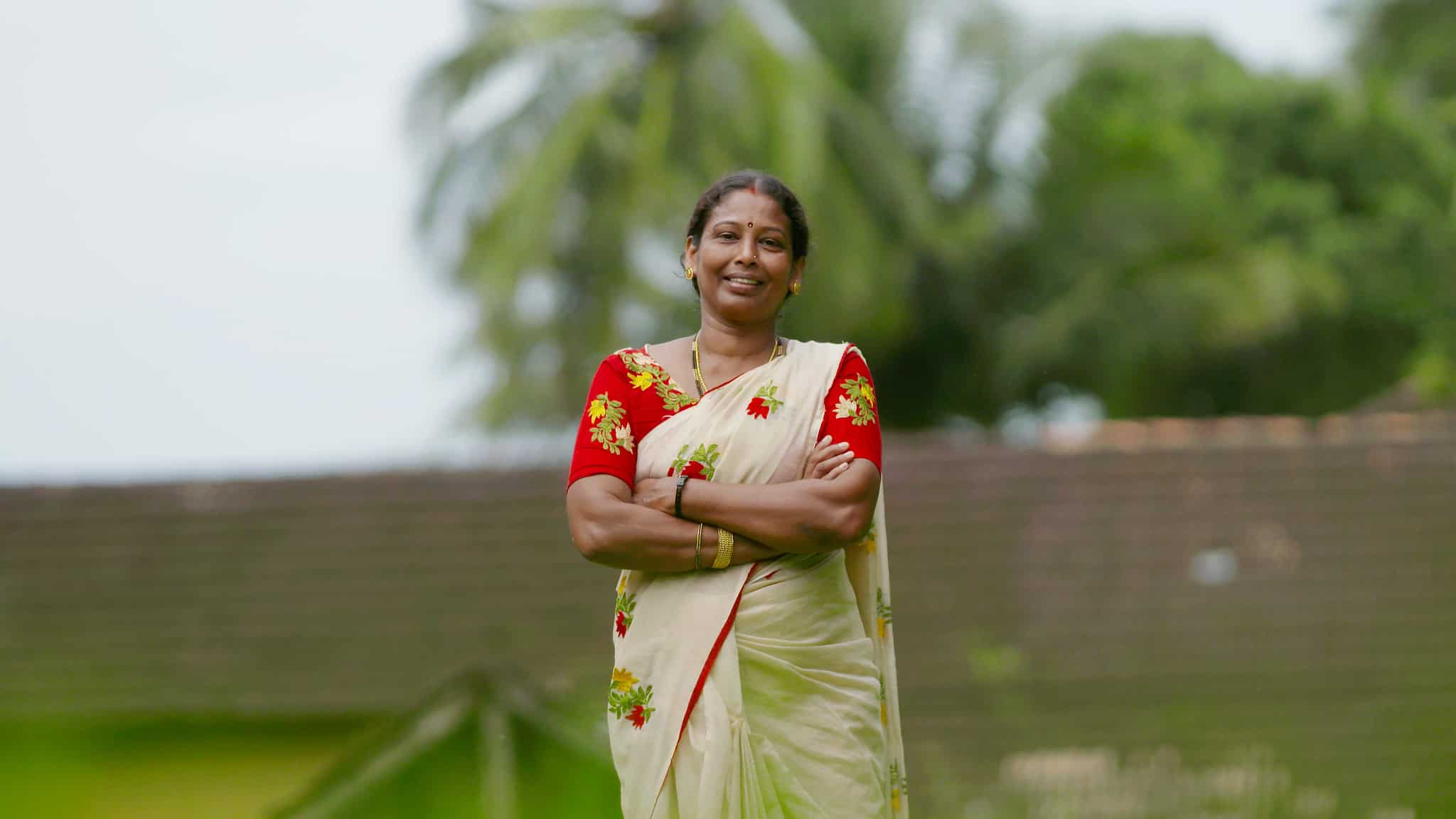Image: entrepreneur Revathi Naik, who has been supported by Bharatiya Vikas Trust, an energy access training pioneer.
For two decades, Ashden has backed climate innovators in low-income countries. Now our international work has a new and urgent focus – the skills and training needed to deliver universal energy access.
We will work closely with frontline organisations to spotlight best practice and to develop, trial and scale up new approaches to skills and training. These will grow the number of qualified and capable workers in the sector, ensure training meets the needs of employers, and provide more opportunities for excluded groups such as women.
But we want our impact to go even further. So we will also take the insights from this process and share them with global policymakers, funders and investors – figures who have the power to drive global change, but who are often disconnected from the challenges and opportunities encountered by those at the grassroots.
Energy access skills – why are we taking action?
Billions of people live with little or no access to clean and affordable energy. Powering up lives supports people to boost their incomes, health and resilience, and sets countries on course for a zero carbon future.
While the energy sector has made rapid progress in recent years, a shortage of qualified workers is limiting its growth. Frontline enterprises and organisations warn of a disconnect between training institutions and enterprises, a lack of vocational training and apprenticeships, and the need to address cultural and social barriers to women joining the energy access workforce.
Acting now can create a fairer and better world. There are currently just 179,000 renewable energy jobs in Sub-Saharan Africa – barely half the figure for Germany (309,000). Meanwhile, Africa’s youth population is set to double to 840 million by 2050. We must try to ensure that all children born today have the chance of a rewarding, sustainable career in the energy sector.
Challenges can be overcome by listening to, and investing in, grassroots innovators. Ashden has a strong track-record in supporting such organisations – helping them grow, sharing their stories, and connecting them to partners who can accelerate their progress.
Huge opportunities ahead
The International Labor Organization reports that the green economy could create 24 million jobs worldwide by 2030. But this won’t happen without a big investment in green skills – not just fitting solar panels and water pumps, but also in marketing, IT and other roles. It’s important these jobs are accessible to all. Currently, the share of women in the global renewable energy workforce is only 32%.
Our work in this area doesn’t start from scratch. We are already well networked with many outstanding frontline organisations, who have shown the enormous impact of support for skills and training.
Organisations in our network include New Energy Nexus Uganda, a finalist in the 2021 Ashden Award for Energy Access Innovation. New Energy Nexus supports small rural charities and social enterprises, helping them build business models that create social impact. For example, its loans and training allowed grassroots enterprise RFCare to sell 1,800 efficient cookstoves in the country’s villages. This created jobs and raising living standards in a country where only 2% of people have access to safe, modern cooking appliances.
India’s Bharatiya Vikas Trust is a finalist in the 2021 Ashden Award for Energy Access Skills. The trust offers tailored training to entrepreneurs and the finance sector. It gave rural bank manager Raghvendra Upadhya the knowledge and confidence to lend to grassroots solar energy enterprises in Karnataka. He says: “You can see that photocopying businesses, juice vendors and tailors have all benefited… this is helping poor and lower income groups earn a sustainable livelihood.”
Our plan – will you join us?
In the years ahead we will find frontline organisations who are already innovating in the area of skills and training, in countries where progress needed most. To help them deepen their impact we will draw on our toolbox of proven approaches – such as awards, learning cohorts, events and communications campaigns.
We have recently brought many of these tools together in our Fair Cooling Fund. The initiative is not yet over but has already helped organisations develop new products and services with marginalised communities, secure $1.37 million of additional funding, and earn coverage in media platforms including The Guardian and Financial Times.
Now we are stepping up to tackle a new challenge. Within three years, we will have helped organisation develop and implement new approaches to training that are more inclusive, effective and scalable than those we see today. We will have bridged gaps between frontline enterprises, training institutions and global organisations, so they are working hand-in-hand to give tomorrow’s workforce the skills they need. And we will have shared key insights from this process with investors, funders and policymakers – who can use them to rapidly accelerate best practice around the world.
We are seeking funders and partners who can support us in this vital work. For more information, contact Ed Dean, Ashden’s Director of Business Development.

